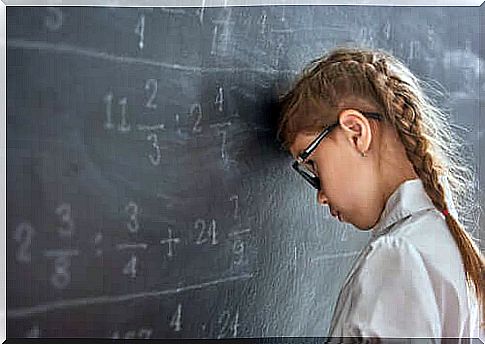Poor School Performance Has Little To Do With Intelligence

Many children and young people around the world have difficulty coping with school, and poor school performance is considered one of the biggest problems with the current education system. Poor school performance is often associated not only with laziness but also with low intelligence. However, this is a very simplistic argument, which is by no means true in most cases. The reasons why students do not succeed in school are very diverse.
Poor school performance
Poor school performance refers to difficulties in achieving the academic goals set by the education system. It can occur in the following ways:
- The student gets bad grades.
- The student leaves the school.
- A student performs academically less well than he or she would have intellectual potential for.
Unfortunately, all the above-mentioned problems are common in Finnish educational institutions as well. For example, as many as one in four vocational school students drop out of school. This is very worrying, as those who have dropped out of secondary education are at risk of being excluded from the labor force.

What is intelligence and how does it relate to school?
According to psychologist Howard Gardner, intelligence refers to the cognitive abilities needed to solve a problem or create products that are important in a cultural context. Thus, it can be said that there are different intelligences that help us to cope in different fields.
Thus, each person has their own limitations and potentials in different areas of expertise. However, in the education system, only linguistic and mathematical-logical intelligence is usually assessed. As a result, many children and young people are frustrated with the academic demands of schools, as they also need to develop other cognitive skills.
In addition, it is worth mentioning that students who do well in school do not necessarily have a high IQ. Their good grades can be the result of things like:
- They spend a lot of time studying.
- They strive for good results.
- They are motivated by school and study.
- They are interested in the topic being taught.
Poor school performance has only a small relationship to intelligence
When the concept of intelligence is properly understood, it is easy to understand that poor school performance has only a minor relationship to intelligence. While intelligence affects a student’s academic performance, there are other internal and external factors that determine whether a student learns or not.

Poor school performance can be due to many factors, examples of which include:
- Weak concentration.
- Poor short-term memory.
- Lack of motivation.
- Boredom and boredom.
- Obvious boredom in class.
- Lack of support and encouragement both at school and at home.
- Living in a poor or problematic family and socio-cultural environment.
- Stress, depression or anxiety.
- Need for special support or teaching.
All of this can make it difficult or impossible for certain traits to develop properly, causing problems in schooling. Undoubtedly, the most important conclusion is that poor school performance can be a problem for any child, regardless of age and intellectual capacity. Therefore, it is the responsibility of the school and teachers to monitor all students and help those who have difficulty doing well in school.
We need to identify the causes of the problems and make different changes according to the needs of each student. All children and young people have the right to quality education and thus to success in studies and life.









